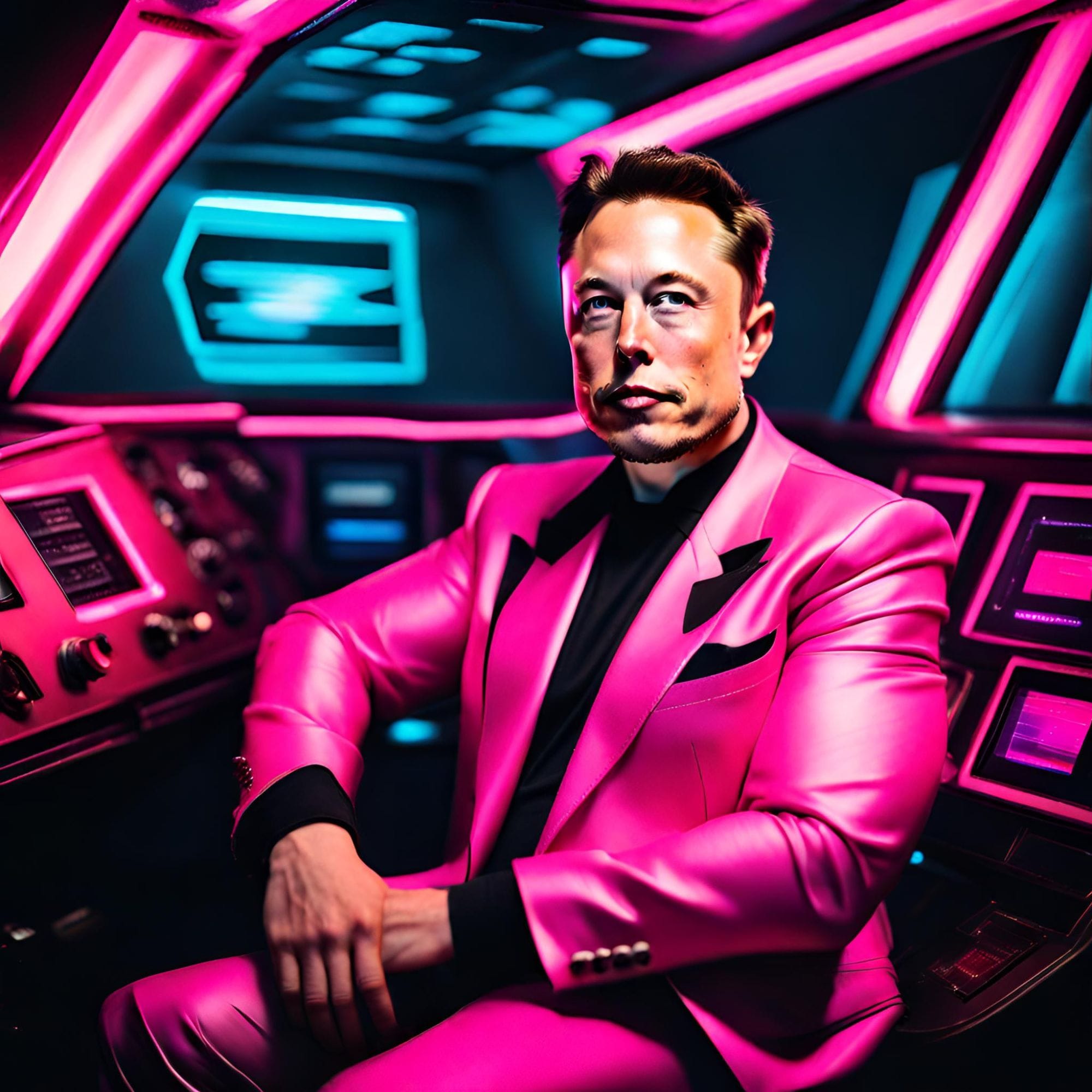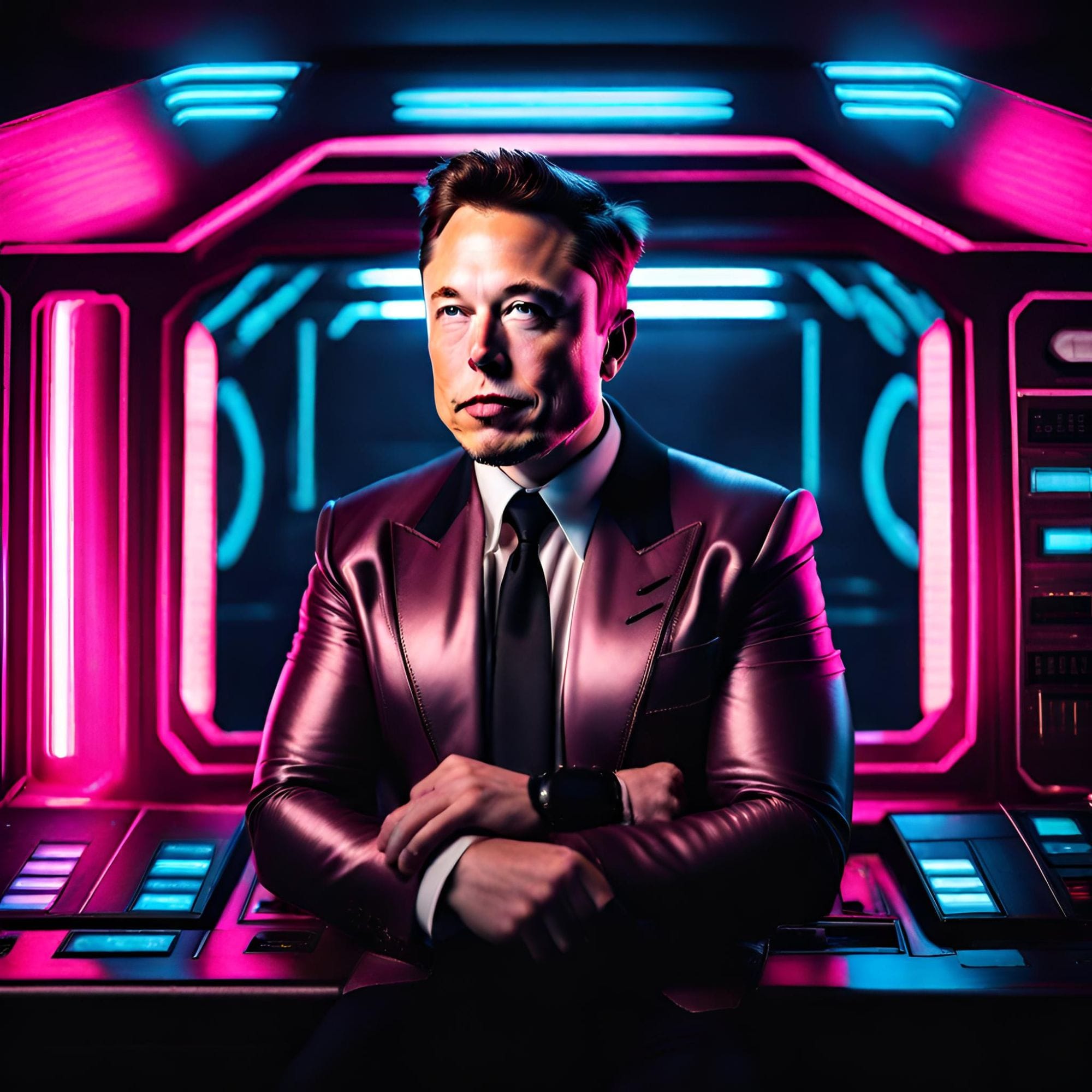Unraveling the Impact of Elon Musk's Twitter Takeover: Popularity, Bias, and Regulatory Challenges










buymeacoffee.com coming soon..
Introduction
In today's digital age, social media platforms have become integral to our daily lives, serving as a means of communication, information sharing, and even entertainment. Twitter, one of the most prominent social media platforms, has recently found itself at the center of attention due to the growing influence of Elon Musk, the enigmatic entrepreneur and CEO of companies like Tesla and SpaceX.
Elon Musk's presence on Twitter is undeniable. With millions of followers and a penchant for sharing his thoughts and ideas freely, Musk has established himself as a force to be reckoned with in the Twittersphere. However, his increasing influence raises several important questions and concerns about the future of Twitter and its impact on society as a whole.
This article aims to delve into the implications of Elon Musk's takeover of Twitter, exploring both the positive and negative aspects of his influence. We will examine the increased popularity and user engagement that he brings to the platform, as well as the potential bias and censorship concerns that arise from his significant presence. Furthermore, we will analyze the impact of Musk's influence on Twitter as a social media platform, considering its role in shaping public discourse and facilitating information dissemination.
Additionally, the article will delve into the regulatory considerations and legal challenges that arise as a result of Musk's influence on Twitter. Antitrust concerns and monopolistic practices may come into play, as the concentration of power in the hands of one individual raises questions about fair competition and market dynamics. Privacy and data protection issues will also be explored, as the collection and use of user data become increasingly relevant in the digital age. We will also discuss the role of government regulation in the realm of social media and whether it should be strengthened to address these concerns.
User reactions and possible alternatives will be examined to provide a comprehensive view of the situation. While Elon Musk enjoys a substantial following on Twitter, there are those who have voiced concerns about his influence and called for decentralized and open-source alternatives. We will explore the support Musk receives from his followers, the calls for alternative platforms, and the potential impact on user trust and migration to other social media platforms.
In conclusion, this article will shed light on the complex and multifaceted issue of Elon Musk's takeover of Twitter. By examining the implications of his influence, the regulatory considerations at play, and the reactions from users, we hope to provide readers with a deeper understanding of this significant development in the social media landscape.
The Implications of Elon Musk's Influence on Twitter
Elon Musk's growing influence on Twitter has not gone unnoticed. As one of the most prominent and influential figures in the world today, Musk's actions and statements have the power to shape public opinion and drive conversations on social media. This section will delve into the implications of Musk's presence on Twitter, exploring both the positive and negative aspects.
Increased Popularity and User Engagement
Elon Musk's Twitter account boasts an enormous following, currently exceeding millions of active users. His tweets often generate significant attention and engagement, sparking discussions and debates among his followers and the broader online community. This increased popularity has brought more users to the platform, drawn to Musk's unique blend of technological expertise, charismatic personality, and a knack for captivating storytelling.
Additionally, Musk's tweets frequently make headlines, extending his reach beyond Twitter's user base. This amplification effect not only brings more attention to the platform but also enhances its relevance in shaping public discourse. By leveraging his immense influence, Musk has the potential to drive conversations on a wide range of topics, from technological advancements to environmental issues and even cryptocurrency.
Potential Bias and Censorship Concerns
While Musk's presence on Twitter has undoubtedly contributed to its popularity, it also raises concerns about potential bias and censorship. As a public figure with strong opinions, Musk's tweets can sometimes be controversial or provocative, which may result in the suppression or removal of his content by Twitter's moderation policies.
The question of bias becomes even more significant when considering Musk's influence on Twitter's algorithms. With his immense popularity, there is a possibility that his tweets receive preferential treatment in terms of visibility and engagement. This preferential treatment could potentially create an uneven playing field, overshadowing other voices and limiting the diversity of opinions on the platform.
Impact on Twitter as a Social Media Platform
Elon Musk's takeover of Twitter has undoubtedly had a profound impact on the platform itself. With his large following and ability to drive engagement, Musk has become a central figure in shaping the platform's culture and conversation dynamics. As a result, Twitter's identity and user experience may increasingly align with Musk's worldview, potentially altering the platform's overall tone and priorities.
Musk's influence could also shape the future development of Twitter. His tweets, ideas, and even investments have the potential to steer the platform's direction, influencing new features, policies, and strategic decisions. This raises questions about the democratic nature of the platform and the potential concentration of power in the hands of a few influential individuals.
Regulatory considerations and legal challenges
Elon Musk's takeover of Twitter has not only raised eyebrows but also sparked discussions about the regulatory considerations and legal challenges associated with his increased influence on the platform. As the world's most influential entrepreneur, Musk's actions and decisions on Twitter have far-reaching implications, prompting the need for a closer examination of potential issues.
Antitrust concerns and monopolistic practices
One of the primary concerns surrounding Musk's takeover of Twitter is the potential for antitrust violations. With his vast reach and influence across various industries, some argue that his dominance in the social media space could lead to a monopolistic environment. This raises questions about fair competition and whether Musk's actions on Twitter could stifle innovation and restrict access for other players in the industry.
Regulators and lawmakers will undoubtedly be keeping a watchful eye on this situation. If Musk's control over Twitter continues to grow unchecked, it is possible that antitrust investigations may be launched to ensure a level playing field for all participants in the social media landscape.
Privacy and data protection issues
Another crucial aspect to consider is the impact of Musk's takeover on user privacy and data protection. With his prominent position on Twitter, Musk has access to vast amounts of user data, which raises concerns about how this information will be used and protected. As debates around data privacy and online surveillance continue to gain traction, it is essential to address these issues in the context of Musk's growing influence on the platform.
Regulatory bodies and privacy advocates will likely scrutinize the measures taken by Musk and Twitter to protect user data, ensuring compliance with existing privacy laws and regulations. Any breaches or mishandling of personal information could result in legal repercussions and damage to both Musk's reputation and the platform's standing.
Role of government regulation in social media
The rise of influential figures like Elon Musk on social media platforms has also sparked debates about the role of government regulation in this realm. While some argue for a hands-off approach, others contend that the power wielded by individuals like Musk necessitates increased oversight and regulation to safeguard users' interests and preserve the integrity of the platform.
Regulatory bodies and policymakers will need to consider the delicate balance between allowing freedom of expression and curbing potential abuses of power. Striking the right balance will be crucial to ensure that Twitter remains a platform where diverse voices can be heard while preventing undue influence and potential harm.
User Reactions and Possible Alternatives
Elon Musk's takeover of Twitter has undoubtedly sparked a myriad of reactions from users across the platform. While some have welcomed his presence and the attention he brings to the platform, others have expressed concerns about the implications of his influence. Additionally, many users have begun to explore alternative platforms that offer a different approach to social media.
Support from Elon Musk's followers
Elon Musk boasts a massive and dedicated following across various social media platforms, and Twitter is no exception. Many of his followers view his involvement with Twitter as a positive development, embracing his unique perspective and charismatic personality. They believe that his presence can bring more excitement and innovation to the platform, attracting new users and increasing engagement.
Calls for decentralization and open-source alternatives
However, not everyone is thrilled about Musk's influence on Twitter. Some users have raised concerns about the consolidation of power and the potential for bias and censorship. In response, there has been a growing movement advocating for decentralization and open-source alternatives to traditional social media platforms.
Decentralized platforms aim to distribute power and control among users, eliminating the need for a single authority figure. They utilize blockchain technology to ensure transparency, privacy, and user control over their data. Projects like Mastodon, Diaspora, and Scuttlebutt have gained traction among those seeking a more democratic and community-driven social media experience.
Impact on user trust and migration to other platforms
Elon Musk's involvement in Twitter has also raised questions about user trust. As controversies and debates unfold on the platform, some users may feel disillusioned by the perceived influence of powerful individuals. This loss of trust may lead to a migration of users to alternative platforms that prioritize user privacy, transparency, and freedom of expression.
Platforms like Parler, MeWe, and Gab have gained attention as alternatives to Twitter, offering different moderation policies and a focus on protecting user privacy. These platforms attract users who prioritize unrestricted speech and seek to avoid potential biases or censorship concerns.
As users explore alternative platforms, Twitter may experience a decline in active users or a shift in its user demographics. This could prompt the platform to reassess its policies and address user concerns to regain their trust and loyalty.
Conclusion
In conclusion, Elon Musk's takeover of Twitter has undoubtedly had a significant impact on the social media platform. On one hand, his presence has led to increased popularity and user engagement, with his tweets often going viral and sparking conversations among millions of users. This has brought a new level of excitement and energy to Twitter, attracting users who may not have been active on the platform before.
However, Musk's influence on Twitter also raises concerns about potential bias and censorship. With his strong opinions and outspoken nature, there is a risk that certain viewpoints may be suppressed or marginalized, leading to a less diverse and inclusive online environment. This could undermine Twitter's reputation as a platform for free expression and open dialogue.
From a regulatory standpoint, there are also important considerations and legal challenges. The growing influence of tech giants like Musk's companies raises concerns about antitrust and monopolistic practices. There is a need for careful examination of the impact these individuals and their companies have on the digital landscape, and whether they are wielding too much power and influence over online communication.
Privacy and data protection issues also come into play. As more users flock to Twitter to engage with Musk's content, their personal information may be at risk. Stricter regulations and safeguards are necessary to ensure that user data is protected and not exploited for commercial gain.
Moreover, the role of government regulation in social media cannot be ignored. While the idea of government intervention in a platform like Twitter may be contentious, it is important to consider how to strike a balance between safeguarding user interests and maintaining the platform's independence. Finding the right regulatory framework is crucial to ensure that platforms like Twitter can thrive while upholding ethical standards and protecting user rights.
User reactions to Musk's influence on Twitter have been mixed. While many of his followers appreciate his presence and support his views, others have called for decentralization and open-source alternatives. This reflects a growing sentiment among users who are concerned about the concentration of power in the hands of a few tech giants. The impact on user trust cannot be underestimated, as some may choose to migrate to other platforms that they perceive to be more transparent and user-centric.
In summary, Elon Musk's takeover of Twitter has both positive and negative implications. While it has brought increased popularity and engagement to the platform, concerns about bias, censorship, and the concentration of power must be addressed. Regulatory considerations, user reactions, and possible alternatives all play a role in shaping the future of Twitter and the broader social media landscape. As we navigate this new era, it is crucial to strike a balance between innovation, user trust, and ethical practices to ensure the continued success of online communication platforms.






Member discussion